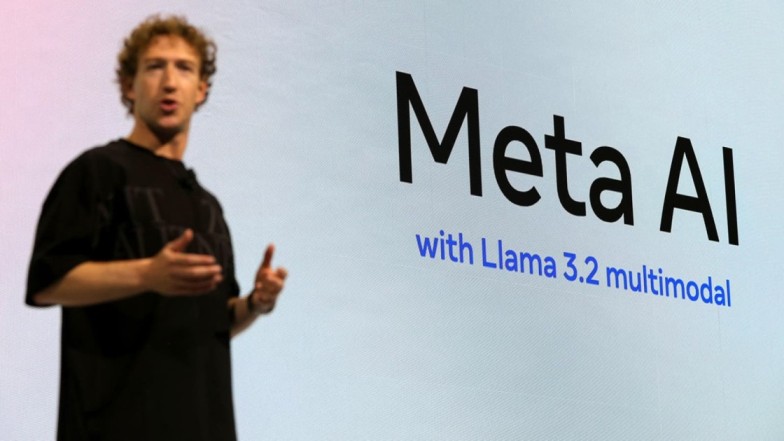Meta, the tech giant behind Facebook, Instagram, WhatsApp, and Messenger, is making a bold move to further integrate artificial intelligence into our daily lives. Following the embedding of Meta AI within its existing suite of popular apps, the company has now unveiled a dedicated, standalone Meta AI application. This announcement, made at Meta’s recent LlamaCon event, positions Meta to directly compete with established AI assistant apps like ChatGPT, offering users a focused and accessible way to interact with its AI capabilities.
Leveraging the Meta Advantage: Personalization Through Data
In a bid to stand out from the crowd of AI powerhouses like OpenAI and Anthropic, Meta is strategically playing its unique hand: its vast repository of user data. Years of interactions, preferences, and connections shared on Facebook and Instagram provide Meta with an unparalleled understanding of its users. This allows their AI app to tap into a level of personalization that others can only dream of.
According to Meta, the AI app can “draw on information you’ve already chosen to share on Meta products,” including your profile details and the content that captures your attention. This promises a more tailored and relevant experience, at least initially for users in the U.S. and Canada. Imagine an AI assistant that already understands your general interests and social circles – the potential for customized recommendations and insightful interactions is significant.
Beyond Basic Prompts: Building a Personal AI Companion
The personalization doesn’t stop at passively analyzing existing data. Meta is also empowering users to actively shape their AI’s understanding. You can explicitly provide information, such as dietary restrictions like lactose intolerance, which the AI can then remember and factor into future recommendations, like suggesting suitable restaurants during your travels. This ability to learn and retain personal details positions Meta’s AI as a more intuitive and helpful companion over time.
Navigating the Data Privacy Landscape
However, the integration of such deep personalization naturally raises questions about data privacy. Meta’s primary revenue stream relies heavily on targeted advertising, fueled by the very user data that will power its AI. Users will understandably be keen to understand how their interactions with the AI chatbots will be utilized and protected. Meta assures users that sharing to the new “Discover feed,” where you can showcase your AI interactions with friends, is entirely optional.
Introducing the “Discover” Feed: A Social Layer for AI
Interestingly, Meta’s standalone AI app incorporates a social element with the “Discover” feed. This feature allows users to share their creative uses of AI with their network. The example provided by Meta, where a user asks the AI to describe them in three emojis and then shares the result, hints at the potential for viral AI-generated content and trends. This social layer could be a strategic move to foster engagement and make AI more approachable and fun for a wider audience.
The Road Ahead: Balancing Innovation and User Trust
While the “Discover” feed introduces an intriguing social dimension, it also begs the question of whether every application truly needs a social sharing component. Regardless, Meta’s foray into the standalone AI app market is a significant development. By leveraging its existing data and focusing on personalization, Meta aims to differentiate itself in a crowded field. The success of this venture will hinge on its ability to deliver genuinely useful and engaging experiences while maintaining user trust regarding data privacy. The world will be watching to see how this personalized AI assistant evolves and integrates into our daily lives.
Subscribe:
Stay connected with the latest updates, exclusive insights, and curated content by subscribing to my newsletter.

